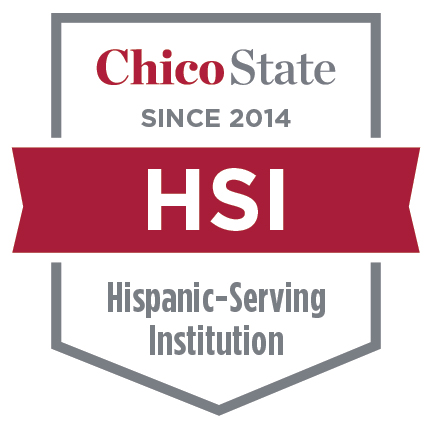
B.S. in Computer Information Systems
The BS in Computer Information Systems prepares students for positions of responsibility in the commercial environment by combining a strong foundation in the computing sciences with a full minor in Business Administration.
Visit the Computer Science Department office for advising materials for previous catalog years.

This program is accredited by the Computer Accreditation Commission of ABET, http://www.abet.org
Computer Information Systems Discipline
"Information systems specialists focus on integrating information technology solutions and business processes to meet the information needs of businesses and other enterprises, enabling them to achieve their objectives in an effective, efficient way. This discipline’s perspective on information technology emphasizes information, and views technology as an instrument for generating, processing, and distributing information. Professionals in the discipline are primarily concerned with the information that computer systems can provide to aid an enterprise in defining and achieving its goals, and the processes that an enterprise can implement or improve using information technology. They must understand both technical and organizational factors, and they must be able to help an organization determine how information and technology-enabled business processes can provide a competitive advantage. The information systems specialist plays a key role in determining the requirements for an organization’s information systems and is active in their specification, design, and implementation. As a result, such professionals require a sound understanding of organizational principles and practices so that they can serve as an effective bridge between the technical and management communities within an organization, enabling them to work in harmony to ensure that the organization has the information and the systems it needs to support its operations. Information systems professionals are also involved in designing technology-based organizational communication and collaboration systems."
- Description of the discipline from ACM+AIS Information Systems 2010 curriculum guidelines: (PDF)
Mission
The Department's Mission is to advance knowledge in computing sciences by providing our students with the highest quality educational experience. The Department strives to:
- Provide excellence in teaching;
- Develop a community of scholars that includes faculty, staff, students and alumni;
- Provide service to others;
- Respond to the changing demands for trained computing professionals.
Program Educational Objectives
Program educational objectives are broad statements that describe the career and professional accomplishments that the program is preparing graduates to achieve. The Program Educational Objectives of the CSU, Chico Computer Information Systems Program are to produce graduates who demonstrate the following, within three to five years after graduation:
1. Those employed in industry, government, or entrepreneurial endeavors will demonstrate professional advancement through significant technical achievements, expanded leadership responsibility, or other recognition of their contributions;
2. Those who continue their formal education will achieve an advanced degree or certification in programs in information systems, business, and other professionally related fields; and
3. All graduates will demonstrate the ability to work effectively as a team member and/or leader in an ever-changing professional environment.
Student Learning Outcomes
Program learning outcomes are narrower statements that describe what students are expected to know and be able to do by the time of graduation. Students completing the Computer Information Systems program are able to:
1. Analyze a complex computing problem and to apply principles of computing and other relevant disciplines to identify solutions.
2. Design, implement,and evaluate a computing-based solution to meet a given set of computing requirements in the context of the program's discipline.
3. Communicate effectively in a variety of professional contexts.
4. Recognize professional responsibilities and make informed judgments in computing practice based on legal and ethical principles.
5. Function effectively as a member or leader of a team engaged in activities appropriate to the program’s discipline.
6. Support the delivery, use, and management of information systems within an information systems environment.
CSCI Department
California State University, Chico
215 O'Connell Technology Center
Chico, CA 95929-0410
Tel: 530-898-6442
csci@csuchico.edu
Copyright © 2015 CSU, Chico
All Rights Reserved
